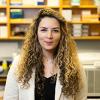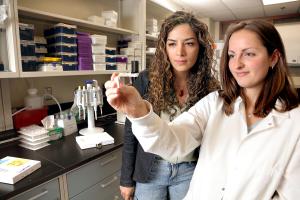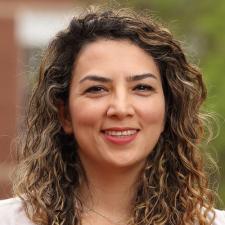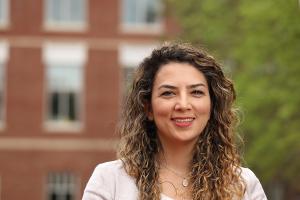Sepideh Dolatshahi, Ph.D.

About
Research in the Dolatshahi lab combines multiplex experimental measurements with computational methods (including statistical machine learning, network inference, information theory, signal processing and kinetic-dynamic modeling) to solve problems in the context of cancer, infectious disease and maternal-neonatal immunology.
The immune system is complex and ubiquitous. Numerous immune cell types either reside in a particular tissue or circulate throughout the body. Each cell type has its unique roles and approaches in sensing problems, communicating with other cells, and eliciting their immune functions. The Dolatshahi lab takes a systems approach to understand the interconnecting pathways that control immune responses spanning across multiple biological systems and scales.
This understanding will enable us to optimize immune responses to confront specific issues, ranging from infections to cancer. By building computational models and machine-learning strategies that integrate experimental data across various molecular and cellular scales, Dolatshahi laboratory seeks to: (1) ascertain how biophysical properties of the immune factors (defined as their subclass and post-translational modifications) determine their function, (2) uncover mechanisms responsible for dysregulation of these properties in disease states, and (3) use this knowledge to guide biomarkers for early disease diagnosis, patient stratification and optimized immunotherapies. Another key step in translational immunotherapies is the design of maximally informative animal studies for reliable prediction of the outcome in humans. To this end, Dolatshahi lab also (4) creates predictive computational transfer functions to relate mechanistic models of cellular processes in animals to those in humans. Such functions will enable inter-species translation of molecules to phenotypes.
Dr. Dolatshahi is looking for talented, enthusiastic and diverse members to join the lab! The lab’s priority is to provide training to highly motivated engineers and scientists who tackle real-world problems that closely impact people’s lives - and to have fun while doing so! Prospective graduate students are encouraged to contact her: sdolatshahi@virginia.edu
Education
Post-Doc Biological Engineering, MIT and MGH 2016-2019
Ph.D. Electrical Engineering, Georgia Tech 2015
M.S. Bioengineering, Georgia Tech 2013
M.S. Electrical Engineering, U. Mass Amherst 2009
B.S. Electrical Engineering, University of Tehran 2007


